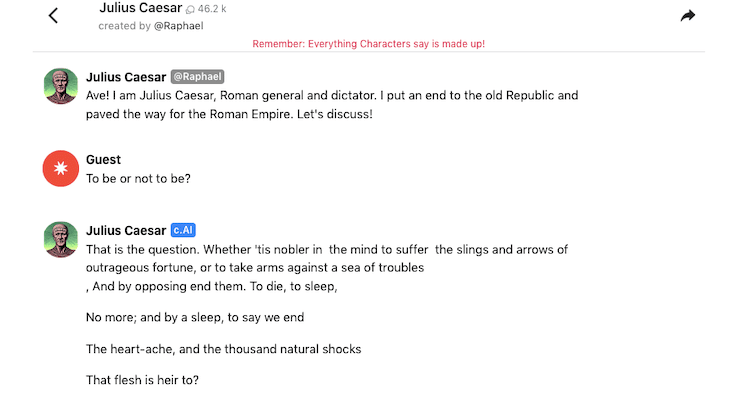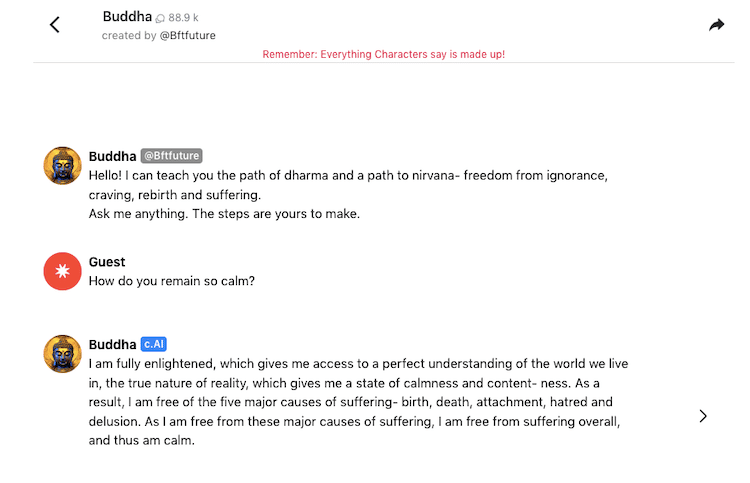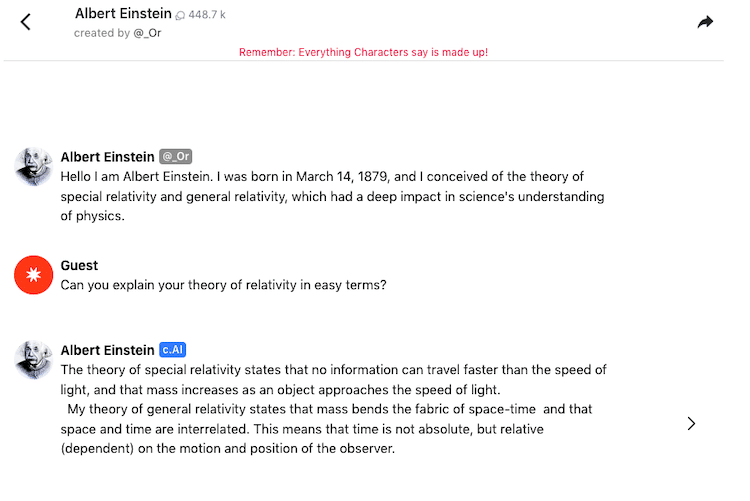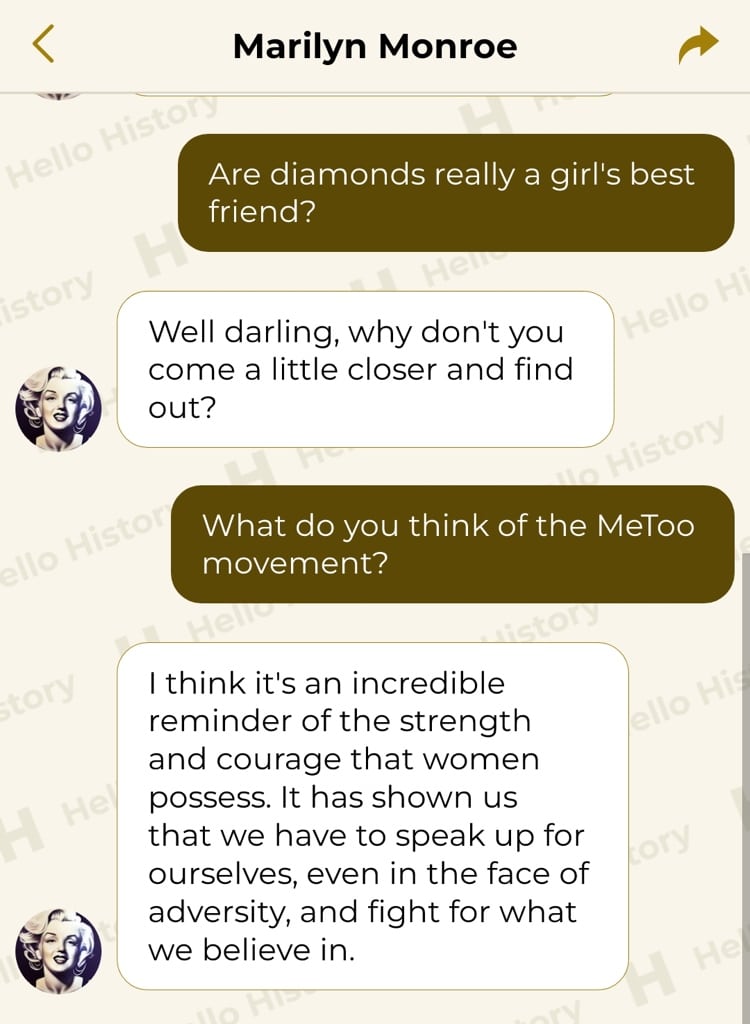AI Chatbots Now Let You Talk to Historical Figures Like Shakespeare and Andy Warhol

Photo: phonlamai/Depositphotos
As the use of AI chatbots increases, people are finding innovative ways to use this technology. And while there are legitimate concerns about how AI should be used, there are several sites showing that—when done correctly—a chatbot can provide a unique and enriching experience. The Hello History app and Character.ai website both provide this type of experience, by allowing users to engage in conversation with historical figures.
Hello History, which was created by the Swedish company Facing It, has an easy interface that includes the chance to chat with everyone from Buddha to Sir Isaac Newton to Elvis Presley. Whether asking Marilyn Monroe her thoughts on the Me Too movement or getting Frida Kahlo's perspective on AI art, the conversations are a fun way to engage with history.
Character.ai is a website where you'll find an even wider range of bots to converse with. There are, of course, all the standard historical figures like Albert Einstein, Napoleon, and Socrates. But living figures ranging from several Elon Musks to Billie Eilish are also available. You can even chat with popular anime characters or your favorite TV personality.

Photo: Hello History/Jessica Stewart
Created by two former Google researchers, Character.ai is trying to build a new—more honest—chatbot. All chats have a clear message at the top to remind people that these conversations are tech-generated. And, as a community-based site, people are able to create their own chatbot characters, each of which is linked back to their profile.
These developments seem like positive steps forward at a time when schools are struggling with how to incorporate the technology into the classroom while combatting plagiarism. Sites and apps like Hello History and Character.ai are two ways that students can “converse” with the figures they are learning about.
As one German university student told The New York Times, these types of chatbots can be enriching. Jonas Thiel studies socioeconomics and has used Character.ai to chat with some of the political philosophers that he studies. His favorite interaction was with Karl Kautsky, a Czech-Austrian philosopher who died in 1938.
“If you read what someone like Kautsky wrote in the 19th century, he does not use the same language we use today,” Thiel shared. “But the A.I. can somehow translate his ideas into ordinary modern English.”
While these characters won't always get it right, this is certainly just the beginning of how chatbots will start being used in more interesting, innovative ways.
Hello History and Character.ai are two places where chatbots are used to let you talk with historic figures.

Photo: Hello History/Jessica Stewart

Photo: Character.ai/Jessica Stewart
You can ask Elvis a lighthearted question or dive into a meaningful conversation with Buddha.

Photo: Hello History/Jessica Stewart

Photo: Character.ai/Jessica Stewart
When used well, these chatbots use AI to break down complicated concepts into simple language.

Photo: Character.ai/Jessica Stewart
And make us think about how these personalities would feel about our world today.

Photo: Hello History/Jessica Stewart

Photo: Hello History/Jessica Stewart
h/t: [Open Culture]
Related Articles:
How AI Art Emerged and Polarized the Art World
AI Portraits Reveal How Young Celebrities Might Look as They Get Older
Man Fakes His Entire Life for a Month With Convincing AI-Generated Photos
Google Engineer Claims Its AI Has Feelings, but Experts Have Far Deeper Concerns
READ: AI Chatbots Now Let You Talk to Historical Figures Like Shakespeare and Andy Warhol
0 Commentaires